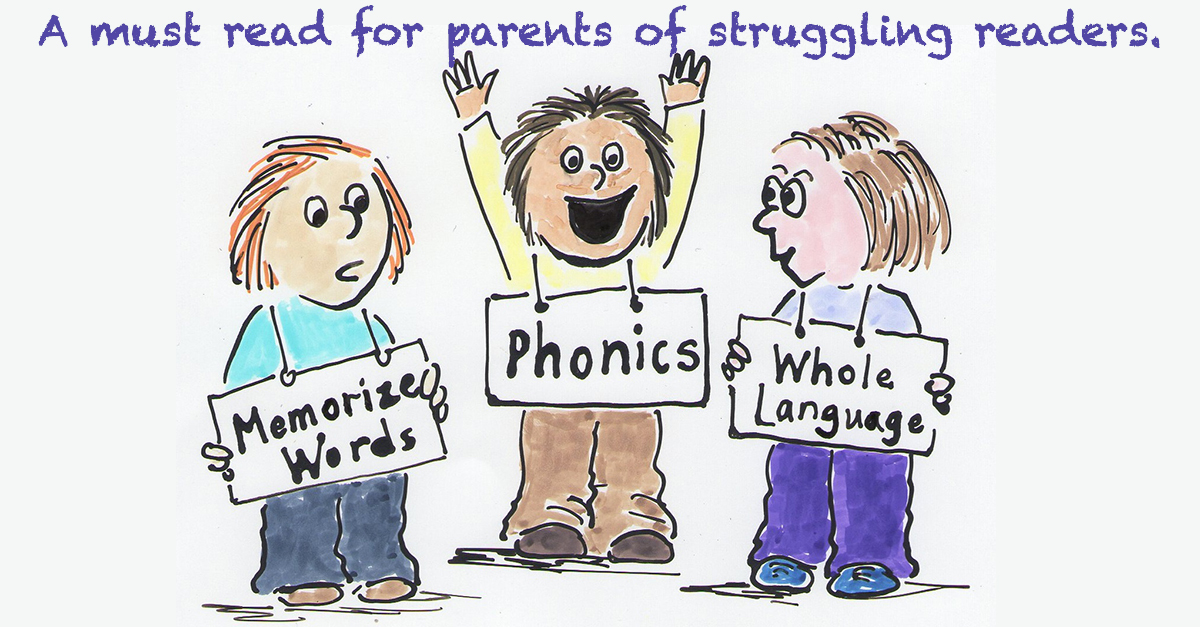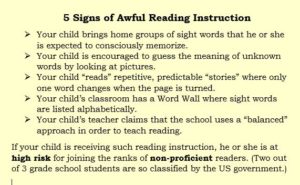

A few weeks back, a fellow education advocate sent me the link to an article written by Emily Hanford (@ehanford), a senior education correspondent for American Public Media. The article, titled Hard Words: Why aren’t kids being taught to read?, opens up and delves into a spot on analysis of what is missing in elementary classrooms…research backed methods. I was fist-pumping while reading the first few paragraphs because the issue of teaching reading has been a major catalyst in my advocacy because my own child has suffered from it. I was excited to see someone talking about it; until I got to the part where Hanford placed blame squarely on teachers for ignoring the research.
I am in my sixteenth year of teaching. As an undergraduate majoring in English and minoring in Psychology, pedagogy courses related to teaching reading were extra interesting to me. I’ve always had a love for reading and writing, and drilling down into the mechanics of teaching young children how to read was especially appealing to me. I taught elementary for the first five years of my teaching career, and I used what I learned in those classes each and everyday, despite the district’s continued jumping from ship to ship with each “best new” reading program. The teachers I worked with and socialized with knew what it took to teach reading, and they did what they had to do.
I was deeply offended by Hanford’s assertion, so I reached out to her via email and explained that the absence of research-back methods in the classroom is not because teachers ignore them, but instead, because of more than a decade of top-down education via No Child Left Behind, and now, Every Student Succeeds Act, research-backed programs have been removed from the classroom by districts adhering to state departments adhering to the feds. She responded saying that she disagreed and stated that teacher preparation programs aren’t teaching it.

Over the last few weeks, I’ve given her response a lot of thought. I’ve also been following and reading the responses to her tweets related to the article. In retrospect, I can see that for teachers who entered the profession five, or so, years after me, the lack of emphasis on research-backed methods, and the increased pressure of accountability, has limited the ability of those teachers to incorporate the methods into their daily routine. In addition, it is virtually impossible to making it fit in with the non-research backed methods.
Those teachers would include all teachers who entered the profession in the last ten years. Due to the education reforms that have taken over our education system, I acknowledge that not only have these methods disappeared from the classroom, they are no longer included in teacher preparation programs.
The discussion that Emily Hanford is pushing is important to the success of our children. It needs to be shared widely, and often. School boards, legislators and all people involved in education policy need to be drawn to the discussion.
Now, I get to the best part. I was very pleased to see that Hanford has followed up on the original article with recommendations of how to get involved and correct the problem. Please take a moment to read What to do if your child’s school isn’t teaching reading, right. Share it with your friends. Oh, and I could change “reading” to “math” in this blog, and everything still applies. Research-backed methods have been removed from the classroom.


I am a Louisiana resident and retired St. Tammany Parish public school educator. I had to go to MS to acquire an advanced degree in dyslexia therapy from William Carey University. I am now the principal of The 3-D School, Gulf Coast Campus. We are a state-accredited, special-purpose, non-profit, Christian school for children with dyslexia.
Even though I was an experienced educator with a Ph.D., I had never been taught the science of how children learn to read. I was never assessed on my knowledge of the science of reading or how to teach it for my LA certification. For my MS certification, I have had to prove my knowledge of written English orthography, phonemes, oral language, etc. by passing the rigorous Foundations in Reading exam.
There are no LA universities with IMSLEC or IDA accredited teacher preparation programs. When the universities start producing teachers who understand the science of reading and know how to effectively teach using proven structured language programs, I promise children will become better readers, spellers, and writers.